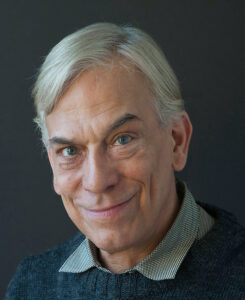Sophia Romma is not your ordinary playwright. She is, rather, in a class all by herself. While some of her work conforms (slightly) to more conventional models (I think, for example of her elegiac portrait of Russian poet Marina Tsvetaeva, The Past is Still Ahead. (Which I have also had the pleasure of directing)
But it is with a play like That Queer Blind Silence that Romma’s enigmatic brilliance can be seen with full-on flashing lights.
I say enigmatic in the sense of a mathematical paradox or a puzzle. There are many moving parts, a kaleidoscope of actions, motives and allusions that only reveal themselves when one approaches the text with newly opened eyes. Pay attention to what is there, not what you think may be there!
At first glance, one could be forgiven (partially) for mistaking this play as a variation on the old "inmates running the asylum" theme, but that reading runs the risk of missing the play's ethos entirely, for Romma’s asylum is a battlefield of elemental impulses both embodied and inferred, each and every one demanding our attention. Romma's characters and situations do not so much evolve as they explode and the audience is advised to take cover! At times it seems to SHOUT: “This is a crisis; why are you just standing there?”
In Romma’s world that Venn diagram of sexual, intellectual and spiritual chaos finds expression in the rise of Vladimir Putin. In many respects, the play feels prescient as the issues raised by the Sochi Olympics back in 2014 have only grown more urgent and grotesque. Putin may be a monster, but he is a monster of our own, perhaps unintended, invention; like a poisonous gas he fills the rupturing fault lines of our dark, discordant worlds. He fills the places we refuse to acknowledge; a malignant expansion super-charged by the denials and conflicts each and every one of us harbours.
But the madhouse is not a metaphor for a world peopled with tabloid celebrity, even if it’s occupants (Paul Robson, Edward Snowden, Johnny Weir, Masha Gesson etc) certainly fill that bill. I suggest instead that Romma offers us a world that is beyond metaphor; that its “is-ness” cannot be reduced to a play of symbols. The here-and-now presented by That Queer Blind Silence is not so much a mirror of the world as it is the world and the world, alive with all it’s contradictions, delusions and inchoate desires is not a pretty sight.
The challenge in producing this play is to be sure and give it the oxygen it needs; let every line and every action breath into the life required and you will begin to find that the play’s seemingly disparate, even irreconcilable parts, come together, illuminating each other in ways that may remain evasive to even the closest of readings.
BIO Line

John Farrell is an Irish writer-director-broadcaster who has staged many plays and events in both Ireland and New York across a career spanning nearly half-a-century.
